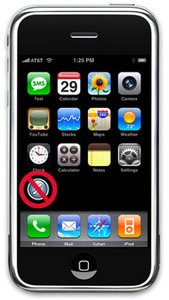 Let’s run down the Wish List from Apple’s iPhone Software Roadmap shindig today at the Cupertino HQ.
Let’s run down the Wish List from Apple’s iPhone Software Roadmap shindig today at the Cupertino HQ.
The availability of an iPhone Software Developer Kit (SDK). Check.
This SDK will allow for development of third-party applications for the iPhone. Check.
Apple announces corporate, enterprise support for the iPhone. Check.
This means push email. Check.
And use of corporate calendars and contacts.
Check and check.
And IT security features for the corporate Nervous Nellies. Check.
And there’s a way of distributing applications that doesn’t rely solely on tethering the iPhone to a computer to access the iTunes Store, where apps can be purchased and downloaded. Check.
And there’s an instant message client. Check.
And games that take advantage of the iPhone’s unique physical features, including a touch screen and accelerometer. Check.
About the only thing that hasn’t been checked off the wish list is immediate availability. We’ll have to wait until late June for the final iPhone SDK and the resulting third-party applications and enterprise support.
“I am happy to admit I was completely off-base with my concerns,” Rob Griffiths wrote for Macworld after today’s iPhone Fest. “I think Apple has hit the proverbial home run here.”
The man standing at the plate and swinging the bat, Apple CEO Steve Jobs, couldn’t help but smile. “[The iPhone] is the most advanced platform out there for mobile devices,” he said. “We are years ahead of any other platform for mobile devices.”
We’ll see about that come late June, the first anniversary of the iPhone. But on paper at least, Apple is satisfying nearly every major wish expressed by developers, consumers, corporate users, and IT folks with the imminent release of the iPhone 2.0 software platform.
Now that the noise has died down, we take a look (in no particular order) at what happened today in the iPhoneosphere and its significance.
Continue reading »
 As promised, the BBC has launched a version of iPlayer for use on Apple’s iPhone and iPod touch mobile devices.
As promised, the BBC has launched a version of iPlayer for use on Apple’s iPhone and iPod touch mobile devices. Let’s run down the Wish List from Apple’s iPhone Software Roadmap shindig today at the Cupertino HQ.
Let’s run down the Wish List from Apple’s iPhone Software Roadmap shindig today at the Cupertino HQ. Interesting timing from ol’ Steve-o on the whole Flash-on-the-iPhone thing.
Interesting timing from ol’ Steve-o on the whole Flash-on-the-iPhone thing. After dipping one toe into the DRM-free waters, two leading audio book publishers are set to ditch copy-protection technology altogether.
After dipping one toe into the DRM-free waters, two leading audio book publishers are set to ditch copy-protection technology altogether. Nokia today
Nokia today  Making good on his
Making good on his  Today you can surf the Web to find, and watch, shows you’ve recently missed on television. You can also surf, find, and watch shows you didn’t know you miss.
Today you can surf the Web to find, and watch, shows you’ve recently missed on television. You can also surf, find, and watch shows you didn’t know you miss. We haven’t paid much attention to classic TV on the Web because these programs are already available on TV, somewhere in the dead-of-night cable-sphere, or on DVD re-issue boxed sets. Even so, NBC and CBS are creating branded retro channels — NBC’s is “Way Back Wednesdays” — and putting considerable resources into their efforts, giving new life to
We haven’t paid much attention to classic TV on the Web because these programs are already available on TV, somewhere in the dead-of-night cable-sphere, or on DVD re-issue boxed sets. Even so, NBC and CBS are creating branded retro channels — NBC’s is “Way Back Wednesdays” — and putting considerable resources into their efforts, giving new life to  The future of the iPhone is coming into focus, even if it is a bit abstract at the moment.
The future of the iPhone is coming into focus, even if it is a bit abstract at the moment.